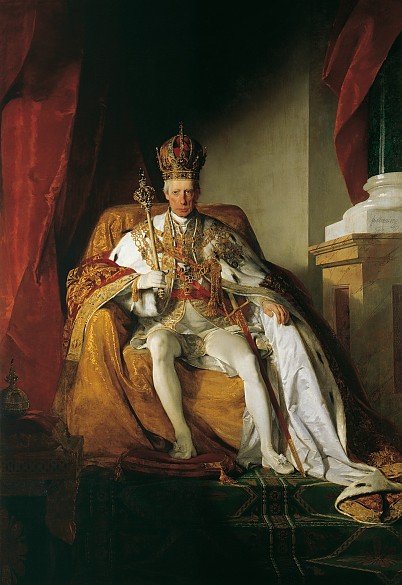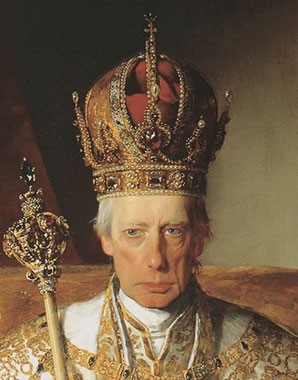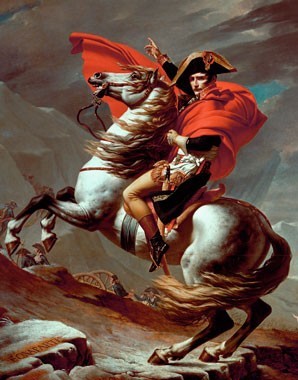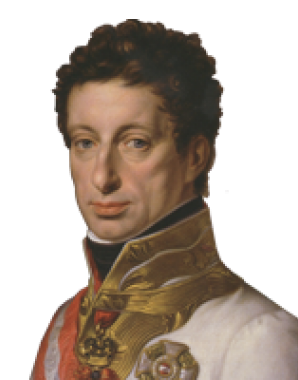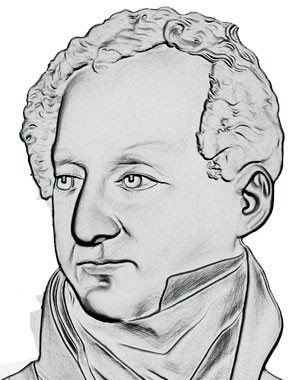Franz I and the Austrian Empire
The old feudal order of Europe was coming apart at the seams when Napoleon Bonaparte crowned himself Emperor of the French in a spectacular ceremony in 1804. To compensate the dynasty’s imperial claims, Franz announced on 11 August 1804 that he was assuming the title and rank of an emperor of Austria.
For Franz, the creation of the Austrian Empire was a less than ideal solution and no real substitute for the venerable title of Holy Roman Emperor. The dissolution of the Old Empire was intended to prevent at all costs the House of Habsburg having to become vassals of the usurper, were Napoleon to be elected emperor by the prince electors. It is significant that the new Austrian emperorship was more or less ‘proclaimed by decree’, and that no ceremonial coronation was held.
This proactive measure was counteracted by the defeats suffered by the Monarchy in the Third War of Coalition (1805–1807) against France, in which Austria, despite its alliances with Russia and Britain, was shaken to its very foundations. Vienna was occupied by French troops without a fight and the imperial forces suffered a crushing defeat at the Battle of Austerlitz near Brünn (Brno). At the subsequent Peace of Pressburg Franz was forced to accept huge territorial losses: together with Venetia and Dalmatia, which Austria had only acquired in 1797, he had to cede Istria, Tyrol and Vorarlberg. As compensation Austria received the Electorate of Salzburg.
In 1809 Franz attempted to change course and declared war on Napoleon again. The French once again occupied Vienna and Napoleon resided at Schönbrunn from May to October 1809. The victory of imperial troops under the command of Archduke Karl at Aspern near Vienna was followed shortly afterwards by defeat at the Battle of Wagram. Even the Tyrolean ‘war of liberation’ led by Andreas Hofer collapsed when support from the Viennese court was not forthcoming. Despite initially promising his full support, Franz deliberately sacrificed this popular uprising to the expediencies of foreign policy. At the Peace of Schönbrunn in 1809 Franz was once again forced to accept galling losses of territory. Austria had to cede Salzburg and parts of Upper Austria to Bavaria; Görz (Gorizia), Trieste, Krain (Carniola) and parts of Carinthia were given to the Kingdom of Italy, ruled by relatives of Napoleon, while West Galizia was attached to the newly established Grand Duchy of Warsaw.
Napoleon’s marriage to Franz’s eldest daughter Marie Louise was felt as an especial humiliation. The French emperor intended to found a dynasty of his own and saw in this Habsburg princess a suitable progenitrix of venerable lineage. The union met with universal condemnation within the family. The implementation of these nuptials was the first great achievement of Metternich, who had been steering the monarchy’s foreign policy virtually single-handed since 1809.
